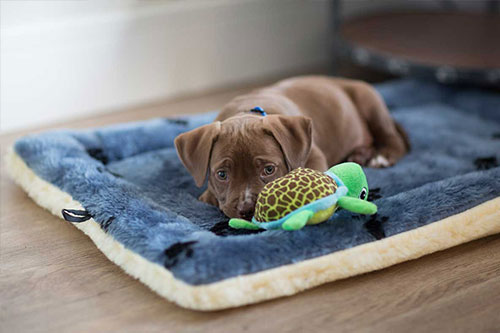
Puppies are more likely to injure themselves than adult dogs. Puppies are not fully developed, and their bodies are still growing and getting stronger as they play. Sometimes, puppies may overdo it and injure themselves with a muscle sprain, dislocation or ligament tears.
"My puppy is limping. What should I do?" This question is one Kirrawee Veterinary Hospital hears frequently, and the answer is critical to your puppy's health.
Puppies are more likely to injure themselves than adult dogs. Puppies are not fully developed, and their bodies are still growing and getting stronger as they play. Sometimes, puppies may overdo it and injure themselves with a muscle sprain, dislocation or ligament tears.
We know these seem like scary things for your puppy to endure, but we're going to explain common reasons for limping in more detail and what you should do if your puppy starts limping.
If your puppy is limping but still playing, this is probably a sign of a superficial injury. Superficial injuries can include:
As soon as you notice your puppy limping, you should inspect their paw to see if you can determine any superficial injuries. Then, you should call your local vet to treat the wound to avoid infection.
If your puppy's limp seems more serious and is significantly disrupting their ability to move, or the limp has been getting worse over time, this indicates a deeper injury. Deeper injuries include:
If your puppy hasn't injured itself but is still limping, this could be a sign of joint disease. Joint diseases include:
Some joint diseases are more common in older dogs than puppies, but hip dysplasia and elbow dysplasia happen in younger pups. Dysplasia means that there is an abnormal formation of the hip or elbow socket.
Early detection of joint disease is vital to getting proper treatment for your puppy. Failing to identify joint disease will affect your puppy's development and ability to run and play for the rest of their life.
Since your puppy's limp could indicate anything from a small scratch to joint disease, getting a professional diagnosis is the best way to put your puppy on the road to recovery. Always see your vet to make sure your puppy is okay, and they can continue to grow and play.
If your puppy is limping, Kirrawee Veterinary Hospital will conduct a comprehensive examination to find what's wrong. Make an appointment by calling 02 9521 6422 or contacting us online.